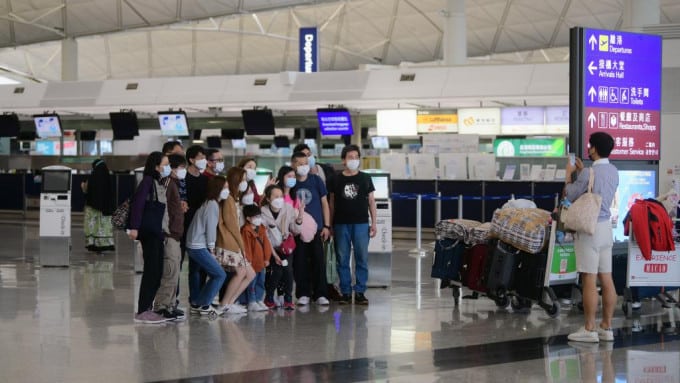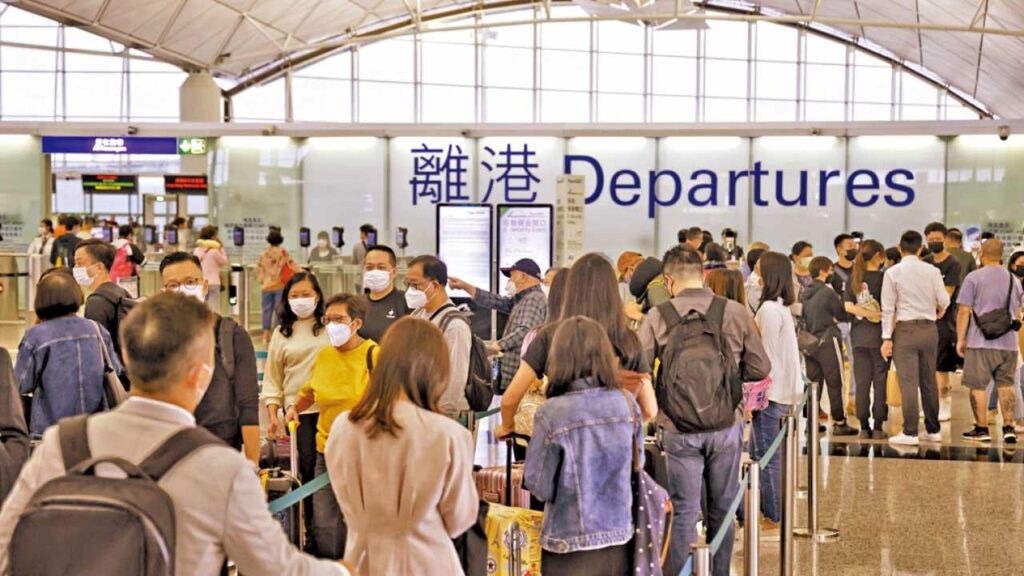Immigration is an eternal topic among Hong Kong people. A recent poll found that one in four people planned to immigrate, a slight increase from half a year ago. Coincidentally, Democratic Thought also released a poll last month, and the willingness to immigrate dropped significantly compared to half a year ago. The two surveys rose and the other fell. Many people asked the author how to interpret it. What is even more curious is who is more accurate?
Survey designs vary
The first reason must be that the two surveys were completed on different dates and represent public opinion at different times. As the political climate eases, it is only a matter of time that the willingness to immigrate will weaken. However, one day in politics is too long. The epidemic in Hong Kong has worsened rapidly recently, and the chief executive's rating has dropped from a two-year high to a two-year low. Citizens' willingness to immigrate is affected by the external environment, and their immediate emotions affected by the current social situation will be generally reflected in their various evaluations of Hong Kong, including their satisfaction with the Chief Executive and their considerations about whether to leave Hong Kong.
Different wording in the questionnaire also directly affects the survey results. The Hong Kong Civil Research Institute asked citizens whether they plan to leave Hong Kong permanently "at present", and the result rose slightly from 20% in August last year to 24% in March this year; Democratic Thinking asked citizens "in the next five years" "Whether there is a plan or not, the result dropped sharply from 33% in July last year to 23% in January this year. The former is more affected by current sentiment, while the latter is closer to the short- and medium-term trend. By the way, the Asia Pacific Institute of CUHK has also conducted a related survey. The questionnaire asked whether they would immigrate "if given the opportunity." The latest figure was in September last year. Forty-two people per 100 people wanted to immigrate, which was higher than the other two institutions. Nearly twice as high, you can see the influence of words and sentences!
Going north to avoid the epidemic and the loss of professionals is more serious
Coming to the technical level, although both polls weighted the data to match the population distribution in Hong Kong, the weighting ranges are vastly different. The democratic approach uses a random sampling telephone survey and uses computers to generate all possible landline and mobile phone numbers. The contact area is wider and the range of adjustments required is smaller. The Hong Kong Civil Research Institute conducted an online survey and sent it via email to citizens who actively registered. As a result, nearly 90% of the 6,700 respondents were pro-democracy supporters. There are only forty-two members of the pro-establishment camp, which needs to be doubled in size by more than twenty-five times, and the centrist faction must be doubled in size several times in order to be consistent with the real political map. This kind of internal group online questionnaire has a fast response time and has its value in market research in the business world, but its scientific level is not as good as the gold standard of public opinion polls - random sampling telephone surveys.
No matter how public opinion is calculated, the purpose is to measure the scale of the immigration phenomenon. The number of BNO visa applications has dropped quarter by quarter. When it was first launched in the first quarter of last year, there were 34,000 applications, 30,000 in the second quarter, 24,000 in the third quarter, and only 16,000 in the fourth quarter. , isn’t this evidence that the immigration boom is cooling? In fact, immigration is only one aspect of brain drain. We pointed out that in the past two years, the wave of Hong Kong people going north to escape the epidemic has been twice as large as the wave of immigrants abroad, and mainland and foreign professionals have also switched from coming to Hong Kong to leaving Hong Kong. The population loss caused by the epidemic is different from overseas immigration in the traditional sense. The situation is more serious and deserves attention.
Ray Poon
Co-Convenor (Research), Path of Democracy



